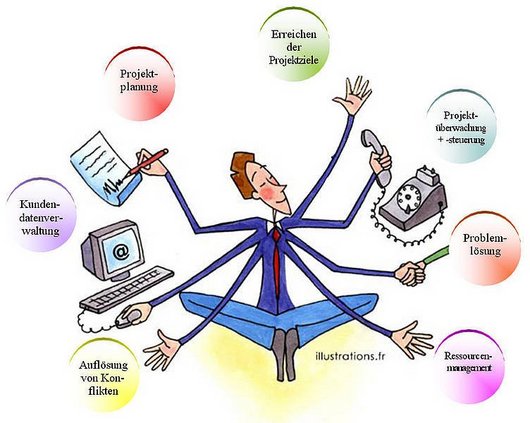A project manager is confronted with numerous different tasks:
Planning a project refers to "the process of identifying the means, resources and actions necessary to accomplish an objective" [Wideman Glossary of PM Terms]. All requirements of the project – like translation-specific or customer-specific demands, the necessary resources, possible risks – have to be identified and specified in the form of objectives and/or work packages. A prerequisite for this is detailed customer data management, offering the possibility of keeping track of the customer's specific needs regarding the current and/or any former project. Read more about planning and how this is done in a PM software.
Controlling and monitoring a project is "the process of comparing actual performance with planned performance, analyzing the differences, and taking the appropriate corrective action" [Wideman Glossary of PM Terms]. This is put into action by implementing regular milestones in order to check the project progress and take the respective measures when needed.
Achieving project objectives [see Objectives] is, of course, one of the main issues of project management. Any obstacle to this task has to be overcome by foreseeing and solving problems emerging during the project life cycle. To be successful in this, it is necessary to keep in mind that the objectives are interdependent and stand in a relationship of competition with each other: the project manager has to balance the competing objectives. This can be done by implementing a quality management system which will systematically analyse customer requirements, define the processes that contribute to the achievement of a qualitative product and keep these processes under control.
The project manager is also responsible for managing project resources (staff, tools, equipment, etc.) needed for achieving project objectives.


